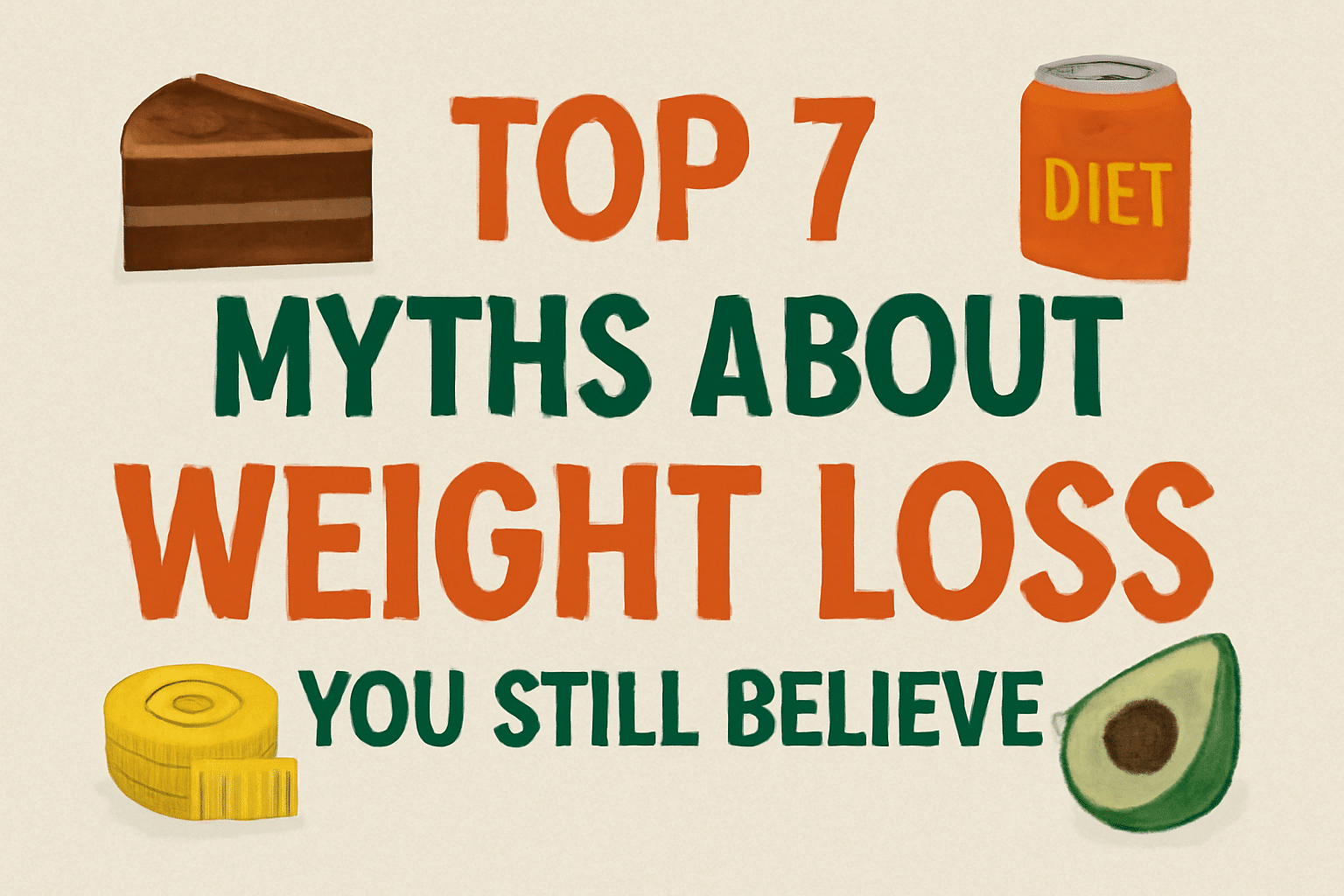🔍 Introduction
Weight loss is one of the most talked-about topics in the health and fitness world. But with so much information (and misinformation) out there, it can be tough to separate fact from fiction.
At Coach For Life, we work with health-conscious individuals every day who are determined to shed those extra pounds — but often find themselves trapped by misleading myths.
In this blog, we’ll uncover the top 7 weight loss myths that many still believe, and debunk them with facts. Let’s set the record straight, so you can lose weight effectively, without the confusion.
🏋️♀️ 1. “You Can Target Fat Loss in Specific Areas”
The Myth:
Many people believe they can lose fat from specific parts of their body — like their belly, thighs, or arms — by doing exercises that target those areas.
The Fact:
Spot reduction doesn’t work. Fat loss happens overall, not in isolated areas. When you lose weight, you can’t choose where it comes from. Your body decides that.
Instead, focus on overall weight loss strategies:
- Full-body exercises (like squats, deadlifts, and cardio)
- Balanced diet
- Consistent physical activity
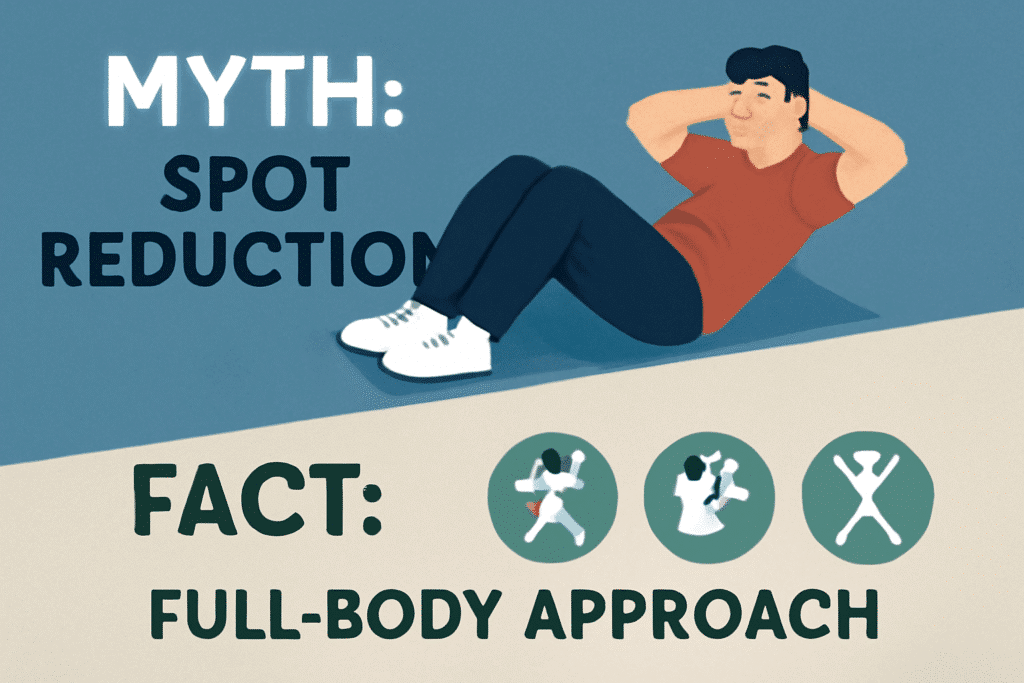
🥑 2. “Low-Fat Diets Are the Best for Weight Loss”
The Myth:
Many people still believe that eating low-fat is the key to shedding pounds. They avoid foods that are higher in fat, thinking that fat makes you fat.
The Fact:
Not all fats are created equal. Healthy fats (like avocado, nuts, and olive oil) are essential for your body and help with metabolism, hormone production, and nutrient absorption.
What matters most is the quality and quantity of the fats you consume, not just the low-fat label on food packages.
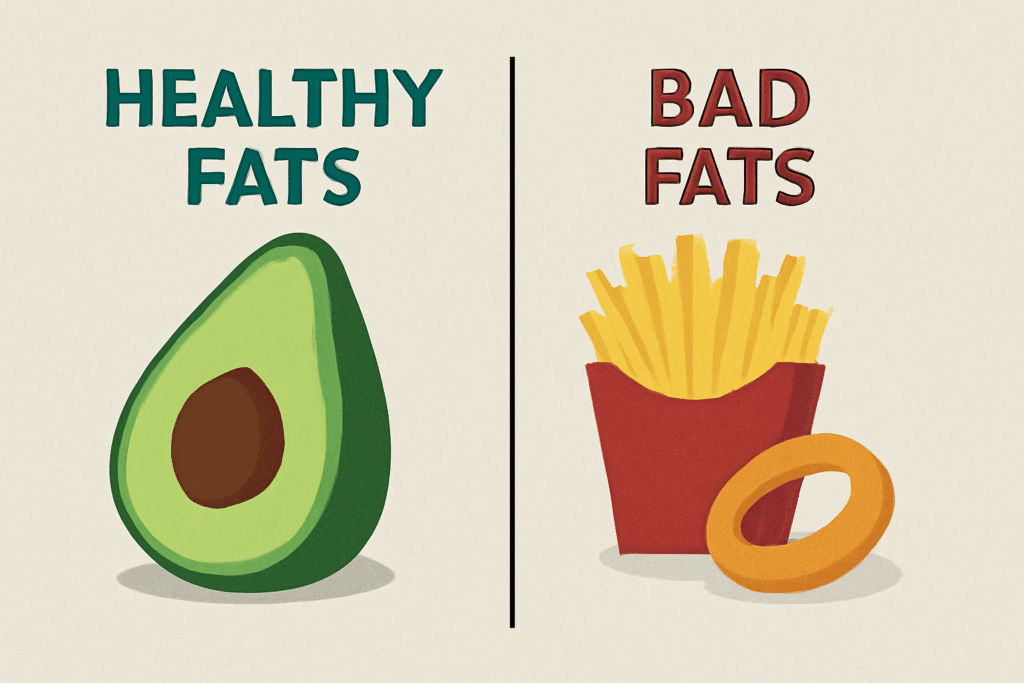
🍞 3. “Carbs Make You Gain Weight”
The Myth:
Carbs are often demonized as the culprit for weight gain, leading many people to avoid them completely, especially in low-carb or keto diets.
The Fact:
Carbohydrates are your body’s primary source of energy, and cutting them out completely can lead to nutrient deficiencies.
The key is choosing the right carbs — focus on whole, complex carbs (like vegetables, fruits, and whole grains) rather than refined carbs (like white bread and sugary snacks).
Moderation and balance are key.
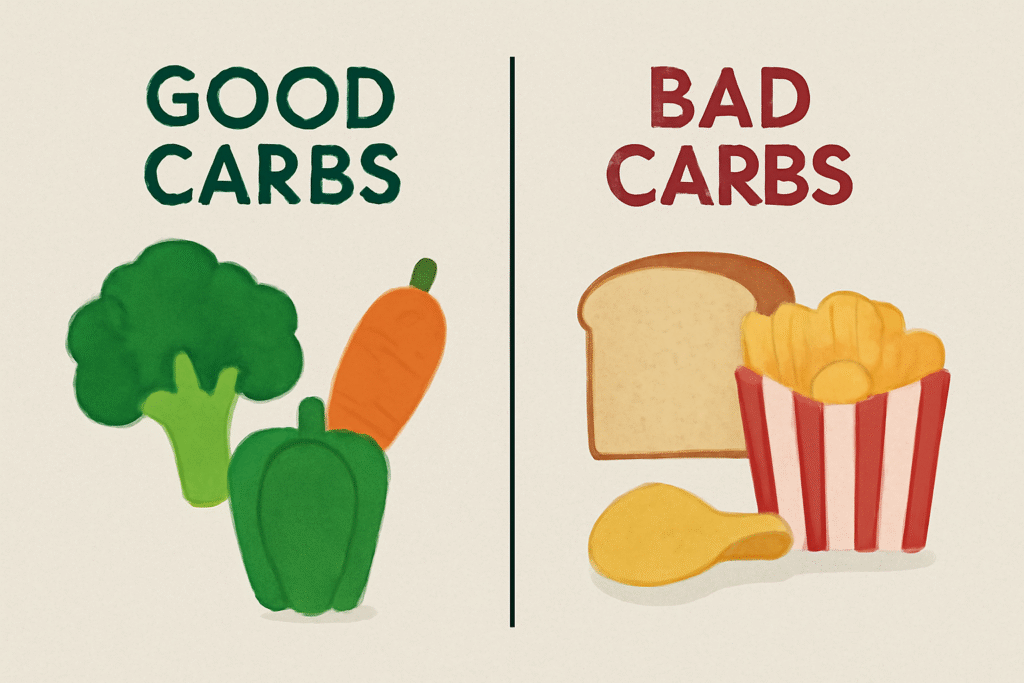
💪 4. “Exercise Alone Will Make You Lose Weight”
The Myth:
Many believe that working out alone is enough to shed the extra weight. They hit the gym but don’t focus on their diet, expecting to see dramatic results.
The Fact:
Exercise is important, but diet plays a larger role in weight loss.
You can’t out-exercise a bad diet. Weight loss happens when you burn more calories than you consume, and the best way to achieve this is through a combination of:
- Regular exercise (strength training + cardio)
- A balanced, calorie-controlled diet
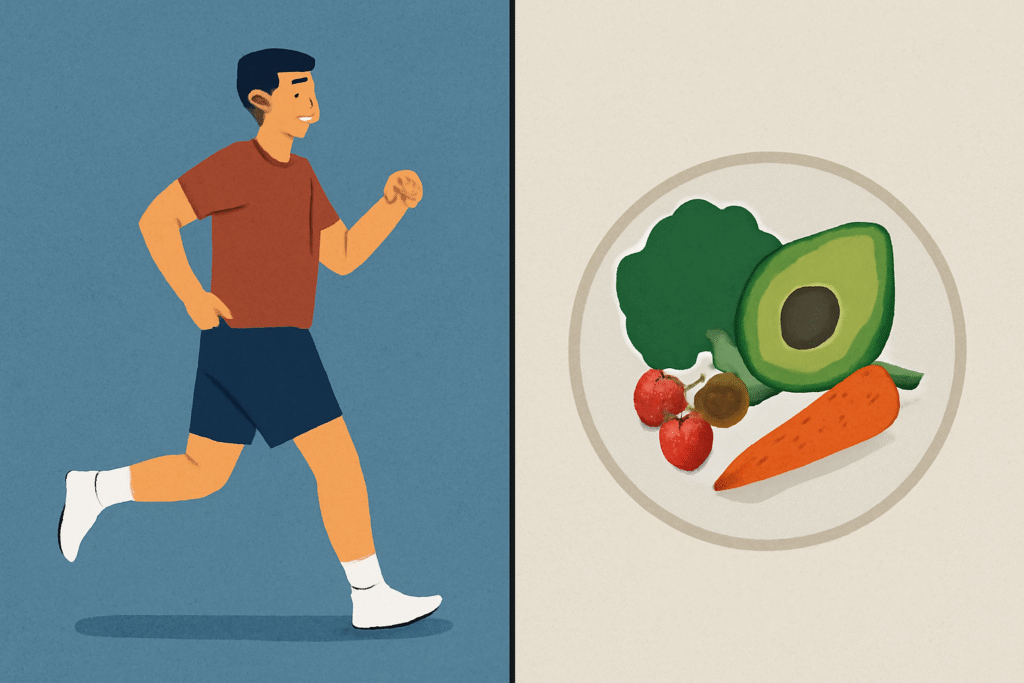
🍽️ 5. “Eating Less is the Key to Losing Weight”
The Myth:
Many people think they have to eat as little as possible to lose weight, restricting calories drastically.
The Fact:
Cutting calories too much can slow down your metabolism and cause muscle loss. Instead, aim for a moderate calorie deficit — eating fewer calories than your body needs without starving yourself.
Focus on nutrient-dense foods that will keep you full and provide the energy needed for daily activities.
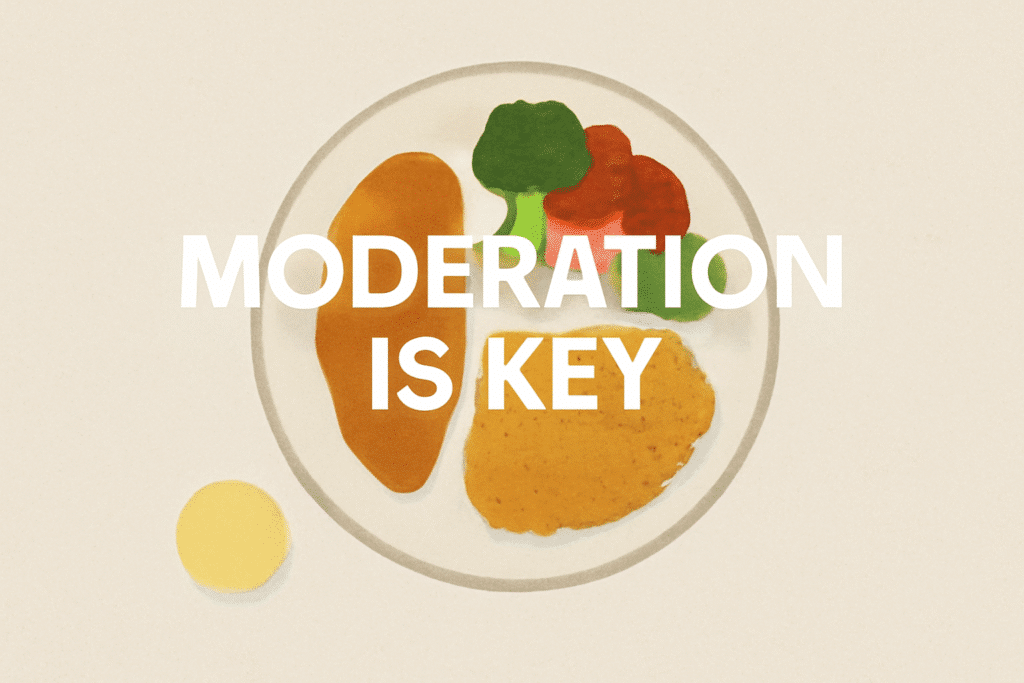
🥤 6. “Drinking Diet Soda Helps You Lose Weight”
The Myth:
Diet sodas are often marketed as a “healthy” alternative to sugary drinks, with many believing they won’t affect weight loss efforts.
The Fact:
While diet sodas are calorie-free, they’re filled with artificial sweeteners, which may increase cravings for sugary foods and cause an insulin response.
It’s better to stick to water, herbal teas, or naturally flavored drinks (like lemon water) to stay hydrated and support your weight loss goals.
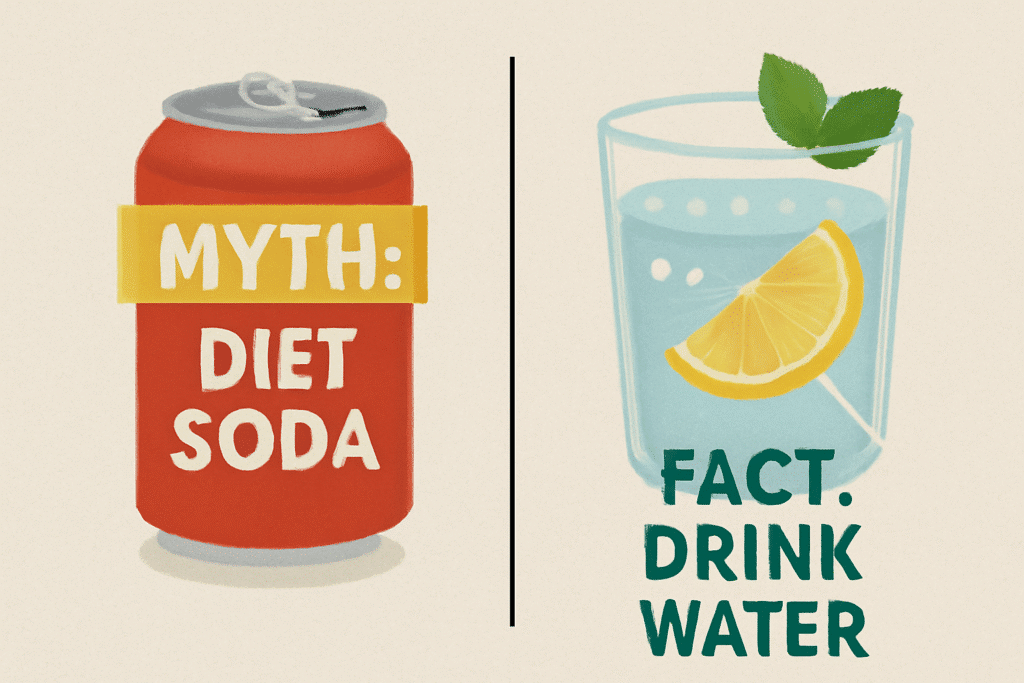
🍽️ 7. “Eating Late at Night Causes Weight Gain”
The Myth:
Many people believe that eating at night will make them gain weight, leading them to avoid food after a certain hour.
The Fact:
It’s not when you eat, but what you eat and how much that matters.
Late-night eating can cause weight gain if it leads to overeating or poor food choices. But as long as you’re sticking to your calorie goals and choosing healthy, balanced meals, eating late won’t make you gain weight.
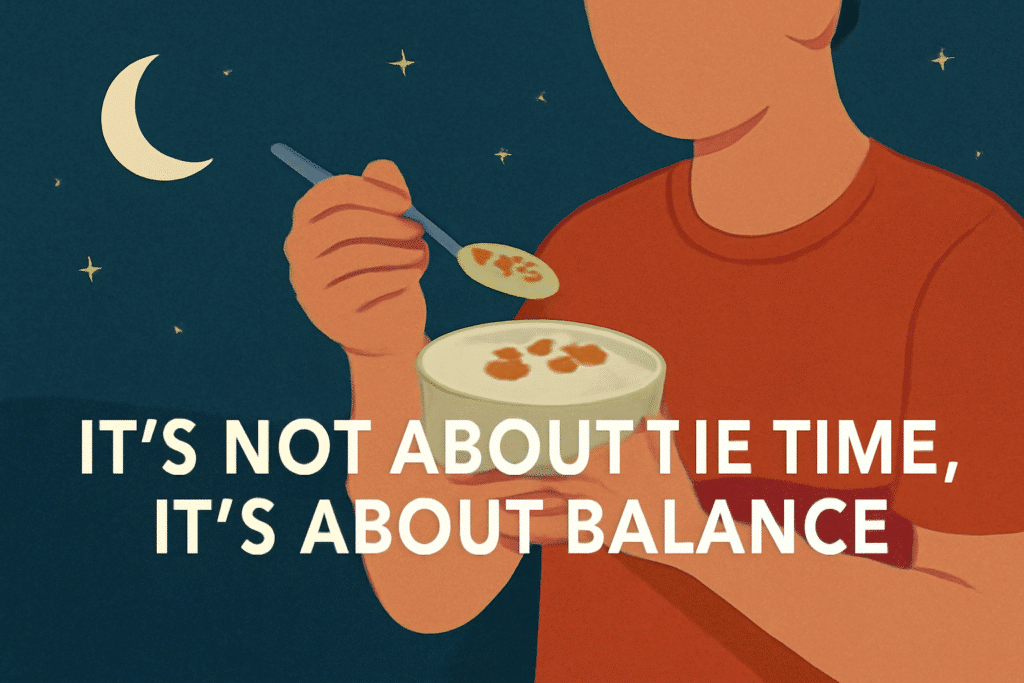
🎯 Conclusion
There’s a lot of confusion about weight loss, but it doesn’t have to be complicated.
By debunking these common myths and focusing on science-backed strategies, you can create a sustainable and effective plan that works for your body.
Weight loss isn’t about restriction or quick fixes; it’s about consistency, smart choices, and being kind to yourself along the way.
If you’re ready to start your journey toward sustainable weight loss and health, join our Complete Health Program today!

